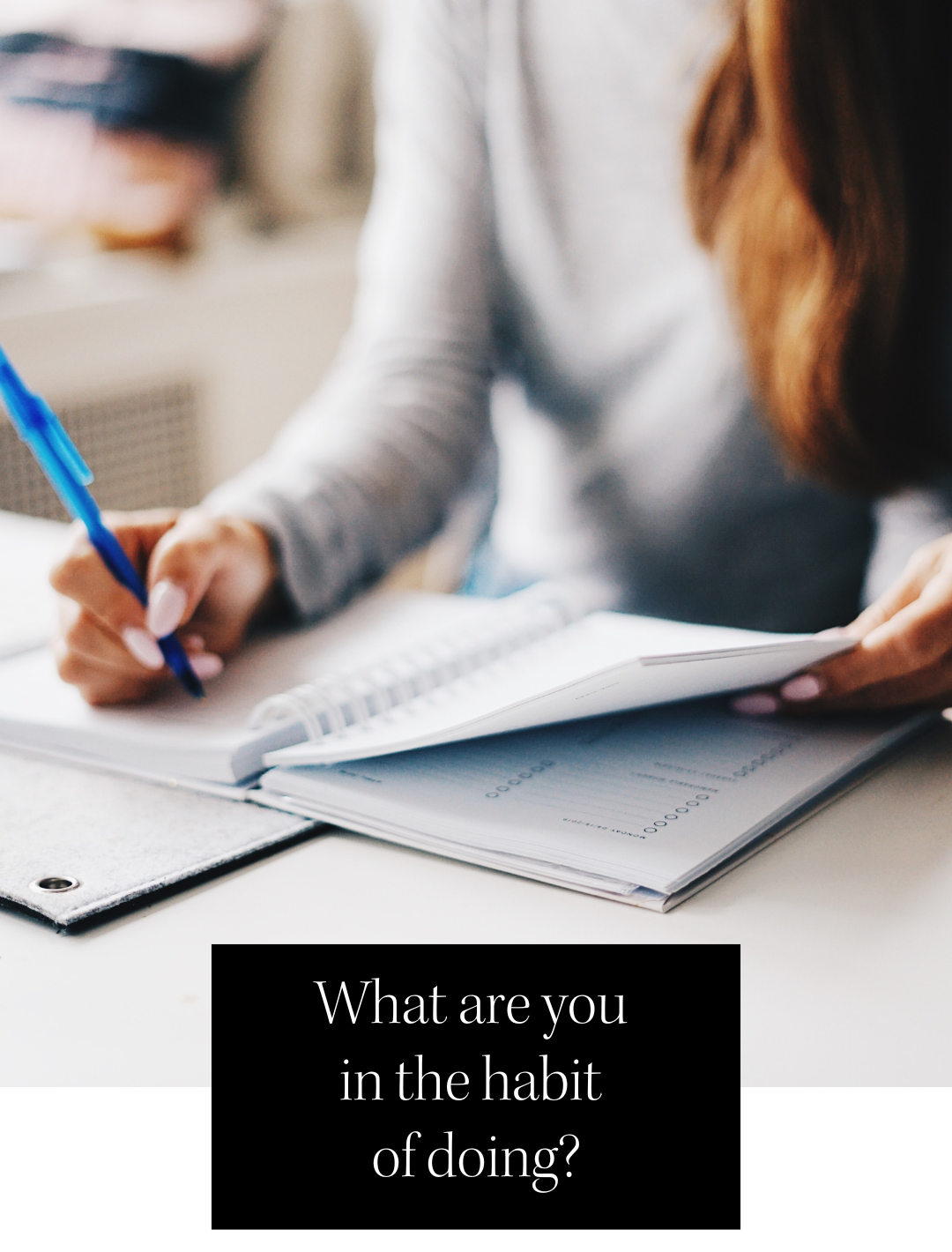What are you in the habit of doing?
Hey friend, how are you doing? Here we are in April already! Lots of things happening and no signs of slowing down. The next round of Attention Audit Accelerator will be happening mid May. You can head on over to the website to get on the waitlist and be notified when doors open. I absolutely love the entire program. I teach you how to streamline your life by using a digital calendar. We go through and declutter your existing calendar, get clear on what matters most to you and strategically plan your days/weeks so that you’re being as efficient as possible. I also teach you how to protect and defend your calendar aka how to set boundaries and say NO. So if you’re looking to practice the building blocks of time management, then you’ll want to join us for the next round!
Alright, this week’s episode is all about bringing awareness to what it is that you’re already in the habit of doing. When I Googled the definition of habit it read: “a habit is a settled or regular tendency or practice, especially one that is hard to give up.” Habits are something you do often and regularly. Habits are small decisions that you make every day that soon become unconscious over time.
Habits can be created by being intentional and they can also be created unconsciously. You are what you repeatedly do (or don’t do). Your success is determined by your habits that you keep.
What are you in the habit of doing or not doing?
Are you in the habit of waking up at 5am and working out?
Are you in the habit of snoozing your alarm?
Are you in the habit of checking your phone regularly?
Are you in the habit of brushing your teeth?
Are you in the habit of reacting a certain way to certain situations?
Are you in the habit of feeling overwhelmed when someone asks you to do something?
Are you in the habit of tightening up when you go to open your calendar or email inbox for the day?
Are you in the habit of responding intensely if you’re stressed or overwhelmed?
Knowing what you’re in the habit of doing can be a powerful tool because it helps you slow it down and see which habits are helpful and ones that are not. It is easier to see that what you want to create is built on different habits.
Rather than label habits good or bad, I prefer to label them as helpful or not helpful. For me, labeling something good or bad often doesn't serve me and simply isn’t helpful.
When you’ve created a habit you’ve created momentum. And the more you do something, the more it becomes a habit, the easier it is to do. And because the brain loves efficiency it becomes easier to do. And if it is easier, you’ll do it. The brain loves the path of least resistance.
What I like about this tool and bringing this awareness is that it also separates you and your habits. When you see that you behave in a certain way because of your habits it becomes more empowering for you to want to change your habits vs thinking ‘that’s just who you are’.
For this week’s homework, I encourage you to bring awareness to what it is that you’re in the habit of doing? Do you like your habits? Do you want to change some of them?
For habits that you like, why do you like them? How do they support you in your life?
For habits that you want to change, consider why? What will be the benefit by changing them?
Alright I’ll talk to you next week, come say hi on IG @attentionaudit!
Until next week, take care my friend!
Free Resources:
Download my Productivity Playbook for Busy Moms
Download my 10 Home Systems Checklist for Busy Moms
